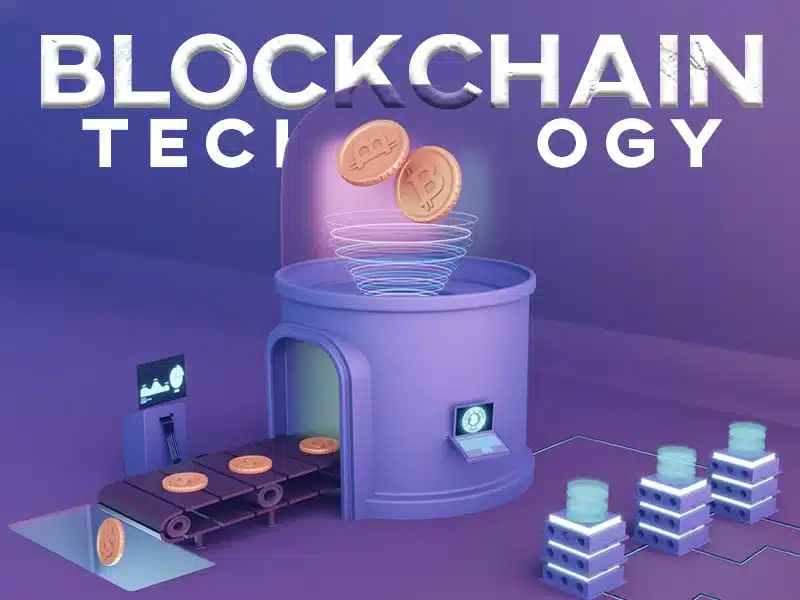Blockchain technology, initially designed as the underlying architecture for cryptocurrencies like Bitcoin, has transcended its origins to become a revolutionary force in various industries. One of the domains experiencing a profound transformation is website development. Blockchain is more than a decentralized ledger; it is a catalyst for reshaping how we conceive, build, and interact with web applications.
In this exploration, we'll delve into the ways in which blockchain technologies are revolutionizing web development, introducing unprecedented security, transparency, and decentralization.
Decentralization and Distributed Architecture
At the core of blockchain's impact on website development company lies the concept of decentralization. Traditional web applications rely on centralized servers, making them susceptible to data breaches, downtime, and single points of failure. Blockchain introduces a distributed architecture, where data is stored across a network of nodes rather than a single server. This decentralization not only enhances security but also contributes to the resilience of web applications, reducing the risk of outages and data manipulation.
Decentralized applications (DApps) are a tangible manifestation of this shift. Built on blockchain platforms like Ethereum or Binance Smart Chain, DApps operate on a peer-to-peer network, eliminating the need for intermediaries and fostering a more democratic online environment.
Smart Contracts for Automated and Trustworthy Transactions
Smart contracts, self-executing contracts with the terms of the agreement directly written into code, are a hallmark of blockchain technologies. They automate and enforce the execution of contractual agreements without the need for intermediaries, reducing costs and increasing efficiency. In web development, smart contracts find applications in various domains.
For instance, e-commerce platforms can leverage smart contracts for transparent and automated payment processing. The terms of a transaction are encoded in the smart contract, and the execution is triggered automatically when the conditions are met. This not only streamlines the payment process but also enhances trust between parties, as the entire transaction history is immutably recorded on the blockchain.
Enhanced Security through Cryptographic Hashing
Security is paramount in web development, especially when dealing with user data and transactions. Blockchain introduces cryptographic hashing, a process that converts data into a fixed-size string of characters. This cryptographic hash ensures the integrity of data, making it virtually impossible to alter without detection.
In the context of web development, this enhanced security feature is invaluable. User authentication, data verification, and protection against unauthorized access benefit from the robust cryptographic foundation provided by blockchain. This is particularly crucial in applications dealing with sensitive information, such as financial transactions, healthcare records, or identity verification.
Immutable Data Storage
The immutability of blockchain data storage is a game-changer for web development services. Once information is added to the blockchain, it cannot be altered or deleted. In traditional databases, data can be vulnerable to manipulation, either accidentally or maliciously. With blockchain, every change to the database is recorded as a new block, creating an unforgeable and transparent history.
This immutability is especially advantageous in scenarios where data integrity is paramount. For instance, in content publishing platforms, each article or piece of content can be stored on the blockchain, ensuring that its original form remains intact and verifiable. This not only safeguards against tampering but also provides a transparent and traceable history of content changes.
Tokenization and the Rise of the Token Economy
Blockchain facilitates the creation of digital tokens, representing assets or value on a blockchain. These tokens have opened up new avenues for web development, giving rise to the token economy. Developers can now create and deploy their own tokens, enabling innovative monetization models within applications.
In the realm of social media, for instance, content creators can be rewarded with tokens directly from their audience for high-quality content. This decentralization of value exchange challenges traditional monetization models dominated by intermediaries. Additionally, tokens can represent ownership rights, access to premium features, or even voting power within a decentralized application.
Interoperability and Cross-Platform Integration
Blockchain's potential for interoperability is transforming the landscape of web development services. Traditionally, applications and platforms operated in silos, hindering seamless integration and collaboration. Blockchain's decentralized and open nature allows for interoperability between different systems, paving the way for cross-platform functionality.
This interoperability is particularly relevant in scenarios where data needs to be shared securely across different applications. For example, in healthcare, patient records stored on a blockchain could be seamlessly accessed and updated by authorized parties across various healthcare providers, ensuring consistency and accuracy while maintaining privacy.
Challenges and Considerations
While the transformative potential of blockchain in the web development company is evident, it comes with its set of challenges and considerations. Scalability, energy consumption, and the complexity of integrating blockchain into existing systems are among the key hurdles. Additionally, the evolving regulatory landscape surrounding blockchain and cryptocurrencies introduces a layer of complexity that developers must navigate.
The nascent nature of blockchain technologies also means that best practices and standards are still emerging. This presents both opportunities for innovation and challenges related to ensuring security, reliability, and user experience in blockchain-powered web applications.
In the dynamic landscape of web development services, blockchain technology stands as a transformative force, redefining the way we conceive, build, and interact with digital applications. Its core principles of decentralization, security, and transparency address longstanding challenges and open up new possibilities.
As developers continue to explore and integrate blockchain into their projects, a website development company witnesses the dawn of a new era—one where trust, efficiency, and innovation converge to shape the future of the digital experience. The journey is ongoing, with each block added to the chain bringing us closer to a decentralized and interconnected digital landscape.


